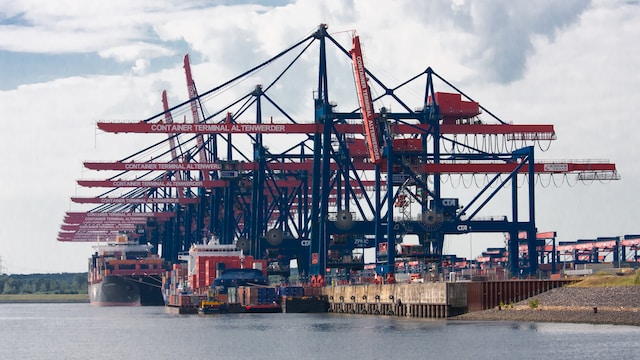
The House Republican Study Committee (RSC) recently released H.R. 7476, the Countering Communist China Act. The RSC describes the 361-page bill as the largest and most comprehensive legislation addressing the Chinese Communist Party (CCP) ever introduced in Congress. The RSC’s leadership in providing ideas to counter China is commendable. However, the RSC’s proposal regarding “Permanent Normal Trade Relations” (PNTR) for China could lead to a costly tax increase on Americans and retaliation against U.S. farmers.
Background:
Americans have enjoyed unprecedented prosperity since China joined the World Trade Organization (WTO) in 2001. Household income, wages, and manufacturing output grew to record heights. Manufacturing layoffs declined as the economy created millions of new jobs. As China slashed its average tariff on U.S.-made goods from 17.1 percent to 4.4 percent, the country grew to be the largest export market for American farmers, an important source of inputs for American manufacturers, and a supplier of affordable goods for American families.
However, China’s record of human rights abuses and its retreat from market-based policies have created new challenges for the United States. Based on these abuses, the RSC’s China bill is timely.
NTU welcomes the RSC’s effort to respond to China and wholeheartedly supports its call to slash regulations and adopt pro-growth tax policies to strengthen our economy.
Policies like providing full and immediate expensing for research and development would promote increased investment in the United States. The RSC’s call for closer trade ties with our allies would also be a step in the right direction, particularly as an alternative to the Biden administration’s ongoing steel and aluminum restrictions on Israel and other allies, its pause on new LNG exports based on dubious “public interest” grounds, and its increasingly restrictive Buy American regulations that make it harder to procure goods and services from our allies at an affordable price.
The RSC bill also proposes to modify U.S. tariffs imposed on China. Their proposal provides an alternative to bills that would terminate “normal” U.S. tariffs on imports from China. Such bills would cost American taxpayers billions of dollars while obliterating exports to our farmers’ largest foreign market. They would impose the biggest U.S. tariff increase since the Smoot-Hawley Tariff Act of 1930. The average tariff on imports from China would increase from 10.6 percent in 2023 to 40.9 percent. According to the Consumer Technology Association, prices for laptops and tablets would rise 21.6 percent, and smartphone prices would increase by 15.7 percent.
The RSC bill creates an expedited process for Congress to modify tariffs on imports from China in a potentially more targeted manner than the wholesale elimination of PNTR. However, it also specifies that if Congress fails to make such modifications, normal tariffs on imports will be replaced with higher, non-PNTR tariffs. Despite the proposed expedited legislative procedures, getting both houses of Congress and the President to agree on a big tariff overhaul would be challenging. If such efforts failed, we can safely predict two things:
- New U.S. tariffs would be paid by American taxpayers, not China. According to a U.S. International Trade Commission analysis of tariffs imposed under Section 232 and Section 301 of U.S. trade law, “U.S. importers bore nearly the full cost of these tariffs.”
- China would retaliate against U.S. tariffs by restricting sales of American farm products. According to a U.S. Department of Agriculture analysis of tariffs imposed under Section 232 and Section 301 of U.S. trade law, “The retaliatory tariffs led to a significant reduction in U.S. agricultural exports to retaliating partners. Nationally, direct U.S. agricultural export losses due to retaliatory tariffs totaled more than $27 billion during 2018 through the end of 2019.”
There is also a risk that rewriting China tariffs could result in rates even higher than the non-PNTR rates currently on the books.
This is not the most effective way to counter China’s malign influence. NTU encourages the RSC to reconsider this potential tax increase and instead focus on proposals that will strengthen our economy so we are better equipped to respond to legitimate threats from communist China.
Additional NTU resources:
Bolstering U.S. Strengths is the Best Response to China
How Free Trade Can Counter China and Enhance American Competitiveness
Sanders-Hawley Tariff Would Be Biggest Tariff Hike Since Smoot-Hawley Tariff Act of 1930

